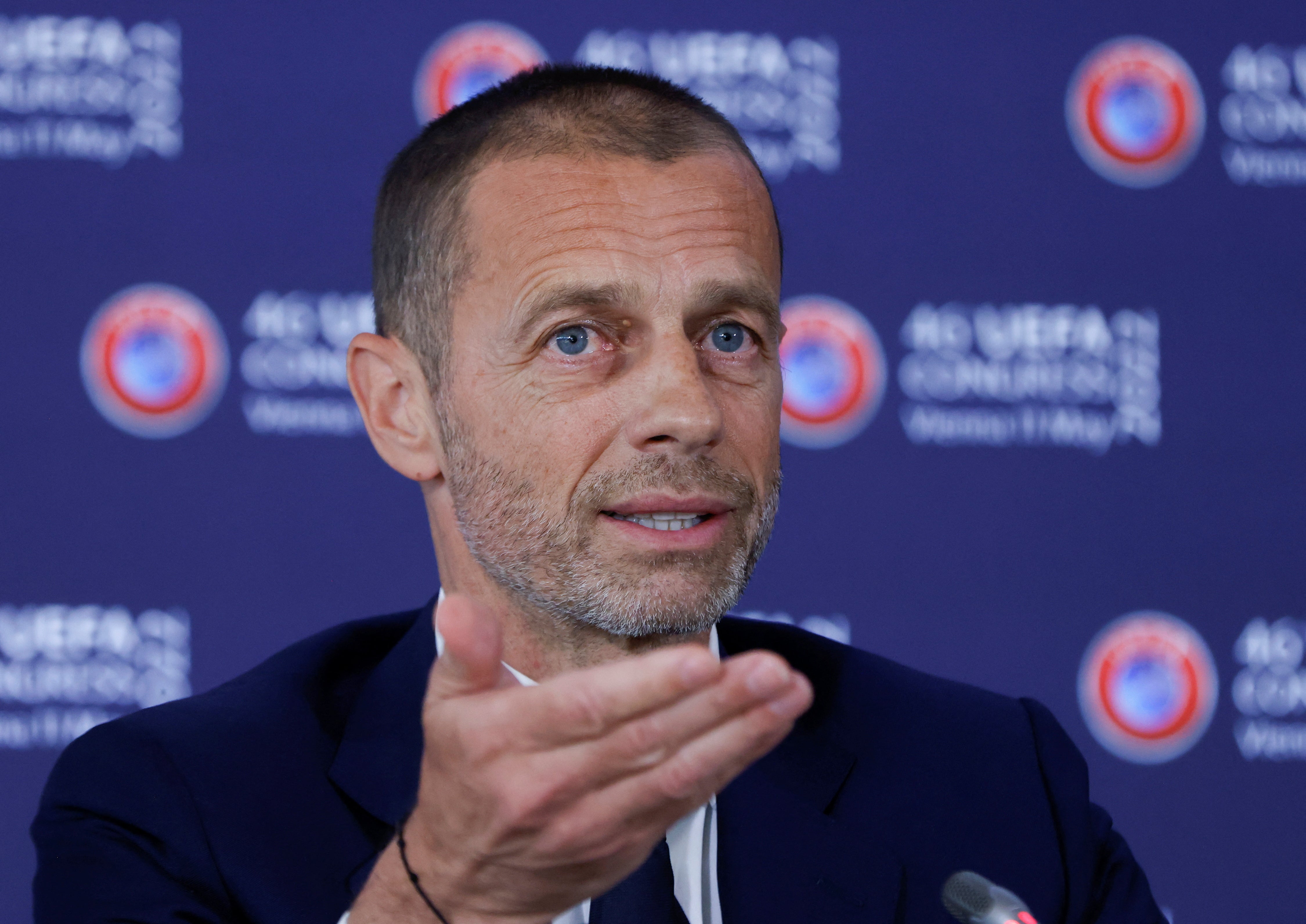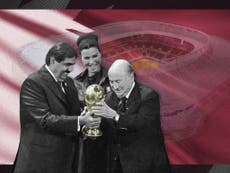Uefa and Super League await first significant step towards football’s future
The Court of Justice of the European Union will make its first call on whether Uefa’s model for the game is fair, in a case brought about by Real Madrid, Barcelona and Juventus

Your support helps us to tell the story
From reproductive rights to climate change to Big Tech, The Independent is on the ground when the story is developing. Whether it's investigating the financials of Elon Musk's pro-Trump PAC or producing our latest documentary, 'The A Word', which shines a light on the American women fighting for reproductive rights, we know how important it is to parse out the facts from the messaging.
At such a critical moment in US history, we need reporters on the ground. Your donation allows us to keep sending journalists to speak to both sides of the story.
The Independent is trusted by Americans across the entire political spectrum. And unlike many other quality news outlets, we choose not to lock Americans out of our reporting and analysis with paywalls. We believe quality journalism should be available to everyone, paid for by those who can afford it.
Your support makes all the difference.The first significant step towards football’s future will be taken on Thursday morning. Athanasios Rantos, Advocate General of the Court of Justice of the European Union (CJEU), is set to give his advisory opinion on how the court should answer questions on whether Uefa runs a “monopoly”, ahead of a final ruling in the first quarter of 2023.
Both sides are known to privately have varying degrees of confidence, with the parties around the three clubs who initially brought the case – Real Madrid, Barcelona, Juventus, now working with sports management company A22 – quietly optimistic but sources on the side of the governing body more bullish.
The basic question assessed is whether Uefa’s existing roles as a Switzerland-based federation that operates, regulates and gate-keeps European football is legal or compatible with European Union law.
Sources close to the agitator clubs say they are in a situation where there are threats to any club that pursues an alternative competition, and they simply want a situation where there are no risks to discussing other possible ideas and clubs are free to engage in dialogue.
While the core questions mean the case is at base about competition law, its potential consequences involve far greater dimensions. A victory for A22 and the clubs would see “the very fabric of European football being ripped up for the first time”. Sources on that side continue to insist that is not the case, but it is an unavoidable prospect, especially with constant references in their questions to “competitions like the European Super League”.
The judge's opinion will consequently depend on how much weight is given by Advocate General Rantos to the legal technicalities and how much to the political side. It was for the latter reason that an “unprecedented” 23 member states turned up at the hearing to back Uefa and say the European football model works for them. By contrast, that is understood to be around double those that turned up to a similar hearing during the Euro crisis.
A22 has meanwhile pointed to how the European Commission’s position is that there is “no such thing as the European sports model”, because of how so many different sports – from basketball to hockey – are run. As such, the belief is that it will be impossible for the tribunal to recommend that the status quo continue.
They argue that A22 should be free to operate in the EU, but that they find when they approach a club about a football competition, that club – which is essentially a “service provider” – has an exclusive commitment to Uefa, something that would be subject to serious sanctions in business.
By coincidence, Thursday also sees a decision announced on a similar case involving the International Skating Union (ISU), in which the European Commission has already come down on the side of the status quo. It was accepted that ISU could regulate ice-skating and speed-skating events set up by independent organisers if they wanted to be authorised by ISU, and that you need these systems to ensure sport is coherent.
This points to one reason why there is confidence within Uefa. If Advocate General Rantos’s recommendation follows that ISU precedent, the A22 case will “have achieved nothing”. If it goes even further, and says Uefa must tighten entry rules – something that was in process when the Super League was launched in April 2021 – it will be “an emphatic victory” for the governing body.
Another reason is some of the proceedings in the hearing itself. At one point, the A22 side were asked why they didn’t just leave Uefa and set up their own competition, since they had billions in funds from Morgan Stanley. There was no answer to this. The feeling was that “they want the best of both worlds”.

It is why it might be difficult to describe Uefa as a monopoly, since it has no public power, and can’t stop alternative football. The only issue comes on whether you want to stay within its rules or not.
Uefa’s legal team also argued this just goes back to “first principles of sport”. It is implicit that you are not entering into a market, but instead joining an association, a club.
Where Uefa might have difficulty is if there is a suggestion of separation of Uefa bodies – that it is wrong to organise and regulate competitions but also profit off them and compete for sponsors. The governing body would in the first instance point out that 93.5 per cent of all revenue from these competitions goes back to the clubs, but it might not get that far.
As of now, the cautious hope on the clubs’ side is that Advocate General Ranthos cannot possibly endorse the status quo, which would leave their clubs with “the legal certainty” to be able to discuss alternative ideas with each other without fear of sanction. Some within Uefa wryly remark that it didn’t stop them trying for a European Super League in the first place.
The governing body, meanwhile, come across as more optimistic, although there is an expectation it will be recommended that rules are improved. If that is the case, they would see it as a defeat on a technicality and a victory on principle.
The main fear for Uefa is a recommendation its bodies are broken up.
Advocate General Rantos’ opinion is expected on Thursday afternoon and is not binding upon the judges of the Grand Chamber. It can nevertheless guide their deliberations and shed light on possible outcomes.
In spring 2023, the CJEU is likely to adopt its judgement, and that is final and not subject to further appeal. It is then the task of the Spanish judge to apply the responses of the CJEU to the specific facts of the case.
Sources close to A22 have made it clear they will abide by whatever the tribunal dictates to the full extent.



Join our commenting forum
Join thought-provoking conversations, follow other Independent readers and see their replies
Comments